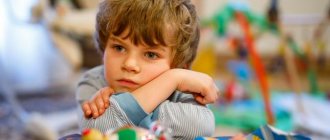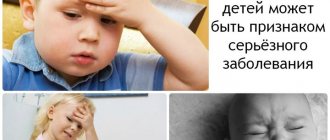The question of whether autism can be treated is asked every day by hundreds of parents whose children have been given this serious diagnosis. Autism is a complex disease that affects the neurological and mental development of a child. As a result of this condition, the child completely loses the ability to socially adapt.
This disease is still poorly understood. However, it continues to attract a lot of attention, even despite the sufficient amount of information about it. At the moment, separate concepts for the treatment of autism have been developed, which they are trying to adhere to around the world.
Causes of the disease
To date, experts have not been able to establish what factors contribute to its development. There are several hypotheses about why the disease appears. For example, some scientists believe that autism occurs in children who grow up in certain environmental conditions. For example, a mother who is harsh and suppressive or suffers from depression is unable to create conditions for the normal upbringing of an infant. As a result, the baby develops developmental and behavioral disorders.
Another hypothesis is based on genetic predisposition. It was never confirmed.
Some experts suggest that the pathology develops as a result of the influence of factors such as infection or intoxication of the mother’s body during gestation or difficult delivery. There is another hypothesis that has appeared recently. It lies in the fact that signs of the disease appear in a child after vaccination. Research has shown that this theory is not true. In addition, refusing vaccinations negatively affects the baby's health. Today, many children are diagnosed with autism. Is this disease curable or not? How to recognize it in time? These questions concern parents of patients.
Study. Drug burden is a problem for people with autism
Many children and adults with autism take multiple medications at the same time, which can cause serious side effects and may not even be effective.
It is not uncommon for children with autism to take two, three, or even four medications at the same time. The same is true for many adults with autism. Statistics on this issue are sparse, but the limited information available suggests that adults with autism are even more likely to be prescribed multiple medications than children. Experts are particularly concerned about prescribing psychiatric medications to children because such drugs can have undesirable effects on brain development and are rarely tested on children.
When and how does the disease manifest itself?
Symptoms usually begin in children around 3 years of age. But the time of onset of the disease may vary. Relatives notice signs of developmental delay in the baby. His speech and behavior are atypical for his age. Sometimes a child begins to speak on time, but then quickly loses the acquired skill. Then the parents notice a violation of the child’s ability to communicate, monotony of games, behavior, gestures and hobbies.
Scientists began to study the pathology discussed in the article relatively recently - about 70 years ago. Many children who are diagnosed with schizophrenic disorder or mental retardation actually have autism. Is there a cure for this disease? Experts say that the earlier the disease is detected, the more effective the measures to combat it. Many drugs that are used for schizophrenia or mental retardation are not only useless, but even harmful for patients with autism. Sometimes the condition in question is no less severe than other mental disorders. The result is disability.
Autism and society. After psychoanalysis: France begins to overcome outdated ideas about autism
France is decades behind its European neighbors on autism, but parents and scientists now have high hopes for a new national autism plan
Between 2004 and 2014, the Council of Europe, a Strasbourg-based organization that promotes human rights on the continent, condemned France five times for discriminating against people with autism. According to the Council of Europe, France, among other things, violated the rights of people with autism to education in mainstream schools and to receive vocational training. In a 2020 report on France, experts from the UN Committee on the Rights of the Child also expressed concern that “children with autism continue to experience widespread violations of their rights.”
Signs of pathology in childhood
There are no typical manifestations of the disease that are characteristic of all patients. Each person, depending on his individual characteristics, is characterized by certain combinations of symptoms. Experts say that autism can be suspected at an early age if the following signs are present:
- The baby does not feel attachment to loved ones, does not cry if mom or dad leave.
- His intellectual development is delayed.
- The child does not strive to communicate with peers. May demonstrate unreasonable cruelty and outbursts of anger. Likes to play alone, avoids peers.
- The baby experiences a strong attachment to certain objects. At the same time, he does not notice other things. For example, he uses one toy, refusing all others.
- Autistic people react painfully to bright lights and loud sounds. He cannot tolerate the noise of a vacuum cleaner or kitchen appliances. For a healthy child, such things seem natural. In an autistic person they cause fear and hysteria.
- The baby does not distinguish animate objects from inanimate things.
- He does not seek to maintain physical contact, does not ask to be held, and does not like touching.
Having discovered such manifestations in their son or daughter, parents turn to specialists. Can autism in children be treated or not? This problem worries many today.
Drug treatment of the disease
To combat this disease, many methods are used that are aimed at correcting the psychological, behavioral, educational development of the child, etc. Each therapy is prescribed by a doctor. In addition to these methods, the use of a course of medications is often practiced to treat autism. In combination with the listed types of therapies, they allow the child to fight a neurological problem: they increase concentration, eliminate aggression, increased activity, bringing the child’s behavior back to normal. Any medications must be taken strictly as prescribed by the doctor. Such drugs include:
- Antidepressants – eliminate sadness, depression, nervousness in a child;
- Analeptic drugs - fight the pathological cyclicity of actions exceeded by the child’s mobility;
- Neurostimulants - prescribed to reduce impulsive behavior and nervousness;
- Neuroleptics – relieve nervous excitement, stabilize behavior.
For parents, the diagnosis of childhood autism sounds like a terrible death sentence. However, there is no need to despair and give up. It has been proven that children with such deviations can quite successfully integrate into society, the main thing is to take timely measures. Let's talk about what treatment for autism in children is considered effective.
Autism refers to various developmental disorders that appear in the first months or years of a child’s life and accompany him throughout his life. Autism can be recognized by speech impairment, difficulty interacting with people, atypical behavioral reactions and way of thinking. Autistic people live in their own world, it is difficult for them to find a place in society, but foreign medical practice shows that it is possible to adapt “other” children.
In Russia, unfortunately, the diagnosis and treatment of autistic disorders in children often falls on the shoulders of parents. If such problems are familiar to you, then do not despair: look for a good specialist and, in the meantime, work with your child using special programs for the development of special children, which are easy to find on the Internet today.
Other signs of the disorder
Other symptoms that may indicate autism include:
- The baby’s games and entertainment are of an unusual nature and are often monotonous.
- The child is not interested in walks or exploring the world around him. He seems withdrawn and distant.
- The baby does not recognize sign language or facial expressions well.
- He avoids direct gaze and does not make eye contact with others.
- The child’s speech and gestures are strange, and their behavior is nervous.
- The baby's voice is monotonous.
Many parents, having noticed similar symptoms in their son or daughter, ask the question of whether autism can be treated in a 3-year-old child. Experts advise paying close attention to the early signs of the disorder and taking your child to the doctor in time. Then there is hope that developmental disorders can be corrected.
Life story of treating autism with the diet of Alexandra, 37 years old
My son Mikhail and I were referred to the first psychologist by our pediatrician. He seemed to understand little of what the adults were telling him. He developed quite normally until he was one and a half years old. However, then he stopped saying out loud the words that he already knew well: mom, dad, cow, cat, etc. It seemed as if the child was disappearing into himself. He was almost always silent. At first we thought that the reason for his silence was ear infections, which often tormented him in childhood.
In just a few months, the child stopped reacting to the outside world and had difficulty recognizing loved ones. He stopped making eye contact and did not make contact. Other oddities in behavior also appeared: he rubbed his head on the floor, walked on tiptoes, made strange gurgling sounds, constantly repeated some action, for example, opening and closing the door or pouring sand from one container to another in the sandbox. The child did not allow himself to be held or hugged. This caused him a storm of indignation or hysterical tears. In addition, he developed chronic diarrhea.
After the first examinations, the psychiatrist finally heard this terrible word - “autism”. As I later learned, autism spectrum disorder is not a mental illness. This is a child development disorder that is caused by brain abnormalities. Although autism affects an average of one in 500 children, it is still the least understood developmental disorder.
We were told that Misha most likely would not become a healthy child and a full-fledged person. He will not be able to make friends, have meaningful conversations, study in a public school, or live independently. We were advised to believe only that the child would be able to instill certain social skills that he himself could not acquire.
After my son was finally diagnosed, I began to disappear into libraries and the Internet in search of information on how to treat autism in children. So I found a book that was about an autistic child. His mother was sure that her son’s symptoms were caused by a “cerebral allergy” to regular milk. The thought of an allergy stuck in my head because Misha loved drinking cow's milk and consumed it in large quantities - up to two liters a day.
Also, I remembered my mother reading a few months ago that many children who suffer from chronic ear infections are allergic to wheat and milk. Even then, she told me to try to exclude these products from Misha’s menu. But I insisted that milk, cheese and pasta are all he likes to eat and if I exclude them from the diet, he will simply starve.
After this, I also remembered that Misha’s first otitis appeared at 11 months. This coincided with the transition from infant formula to cow's milk. I breastfed him until he was three months old, but he did not tolerate breast milk well and was vomiting. Then we were recommended to switch to hypoallergenic baby formula.
In general, there was nothing to lose, and I decided to exclude “suspicious” foods from the child’s diet. What happened next was more like a miracle. A few weeks later, Misha stopped screaming and having hysterics. He stopped repeating the same actions endlessly. And he floored me when he handed me his hand so that I could help him down the stairs. He also allowed his older sister to take him in her arms and sing him a lullaby.
A month later, we visited a good pediatrician who specialized in children's developmental disorders. He conducted several tests with Misha and asked us a bunch of questions. We talked about the improvements in his behavior after we stopped giving him dairy products. However, at the end of the appointment, the doctor said that the child had autism and, although the idea of milk intolerance was interesting, it could not be related to his autism or recent improvements in behavior.
This led us to despair, but the child was getting better every day: he sat in my arms and looked into my eyes, began to pay attention to his sister, slept well, but the diarrhea did not go away.
He was not two years old, and we had already sent him to a specialized children's institution and began to undergo intensive language and behavioral therapy. In addition, we decided to test the theory about the influence of milk on our son’s behavior. In the morning, they gave Misha a glass of milk to drink, and by the evening he began to walk on tiptoes and rub his head on the floor, demonstrating behavior that we had almost forgotten about. A few weeks later, the child’s behavior repeated itself. It turned out that in the garden he was given a piece of cheese. This is how we became convinced that Misha has a kind of allergy to dairy products.
Later I was able to find information about researchers who were collecting evidence that milk complicates the course of autism. It turned out that milk protein, when converted into peptides, affects the brain in much the same way as hallucinogenic drugs. Substances that contained opiates were detected in the urine of children suffering from “milk allergy”. According to scientists, such children either lack the enzyme that digests the peptides, or the peptides enter the bloodstream before they are digested.
Now I began to understand why Misha developed normally while he was fed a hypoallergenic soy infant formula, and this also provided an explanation for why he later demanded a lot of milk - opiates provoke a strong dependence.
After much “research” together with my husband, we came to the conclusion that we need to switch the child to a gluten-free diet, which is what people with celiac disease eat. After 48 hours, Misha had his first hard stool in months. His coordination improved, and after a couple of months I even began to understand the words he spoke.
Our treating doctors only chuckled ironically when we talked about our method of treating autism with diet. They didn't see any connection in it.
By the time Misha was 3 years old, all the doctors agreed that the diagnosis of autism should be removed. The child passed all the tests, which confirmed that he is mentally healthy and healthy. According to the test results, he eventually entered a regular school.
Now Misha is 7, and he, according to the class teacher, is one of the most active and cheerful children in the class. He has friends, he plays in the school theater, he plays imaginary games with his older sister, which autistic children never do. Our worst fears have not come true, we are all incredibly happy.
Features of the speech of patients
It should be noted that many children with this pathology hardly speak until they are 3 years old. Patients can make up words. They also like to copy the speech of others. The child talks about himself in the third person and does not address people by name. When someone tries to talk to an autistic person, they do not respond. Such kids give the impression of being deaf. Delays in development and acquisition of new skills are a feature common to many children with autism. Is there a cure for this disorder? Is it possible to avoid serious consequences? These questions worry parents. Doctors say that a special approach to the education and development of a child, special classes with teachers help correct the manifestations of the disorder.
Interview: “There is a mood of incredible optimism in the scientific world right now”
Neurophysiologist Tatyana Stroganova - about the latest discoveries in the field of autism
We talked with a Russian neurophysiologist, Doctor of Biological Sciences, professor of the Department of Developmental Psychophysiology of the Faculty of Clinical and Special Psychology of the Moscow City Psychological and Pedagogical University, head of the Center for Neurocognitive Research (MEG Center) of the Moscow State University of Psychology and Education, and head of the Laboratory of Autism Research Tatyana Aleksandrovna Stroganova. Today is the first part of this conversation.
Interaction problems
Autistic people are fearful and timid. They don’t know how to play with peers or make friends. Such children are not able to learn norms of behavior. They don't like it when someone bothers them. If another child approaches an autistic child and tries to establish communication, he may run away and hide. In addition, the patient is prone to attacks of anger. The patient directs aggression towards himself or others. Children with this disorder are afraid of change. If you move furniture, rearrange books, or throw away a broken toy, an autistic person will react violently to this. Another feature of such patients is undeveloped abstract thinking. They can only repeat what they have heard or seen. These babies make strange movements (swinging, jumping, shaking their arms, twirling their fingers). This behavior makes it difficult to stay in society. Social adaptation is a problem that worries parents of patients with autism. Are such disorders treated? Will the child be able to live normally in society?
Parents often ask these questions to specialists. Unfortunately, there are no medications that would allow autistic people to communicate adequately. However, there are techniques that can correct behavioral disorders and help the child interact better with others.
Manifestations of illnesses in adolescents
As the patient ages, new symptoms appear. For example, many people have difficulty learning. They have poor reading and writing skills. However, some autistic people demonstrate deep knowledge and good abilities in certain disciplines. This could be mathematics, music, fine arts. By the age of 12, children still acquire basic communication skills. But they prefer to be alone. During puberty, patients may experience anxiety.
Often there is a depressed emotional state, outbursts of anger, and increased sexual desire. Seizures are another common occurrence for teens with autism. Is this symptom treatable? Seizures can be controlled with medications. In severe cases, surgery is used. Sometimes seizures go away on their own, without the use of medication.
Autism in adults
Symptoms in adulthood depend on the severity of the pathology. Patients with this disorder typically experience the following:
- Poverty of gestures and facial expressions.
- Failure to comply with social norms.
- Causing unconscious harm to others.
- Poor ability to establish friendships and family relationships.
- Inexpressiveness of speech, repetition of the same phrases.
- Fear of change.
- Attachment to objects, strict adherence to daily routine.
It is known that with mild autism, patients can adapt relatively normally to environmental conditions and communicate with people. There are individuals who create families and work.
If the pathology is severe, the patient is not able to care for himself.
Therapy
There are no specific medications that could eliminate the manifestations of the disease. Such patients simply require a certain approach.
Experts recommend training them in special institutions (kindergartens and schools). It is important to help children overcome difficulties associated with communication, control outbursts of anger, anxiety and other symptoms. If the disease is accompanied by convulsive attacks, medications are prescribed.
Is childhood autism at least partially curable? This depends on timely diagnosis. In countries where the disease is detected at an early age, patients can lead a normal life. Such people graduate from educational institutions and engage in mental work.
Question answer. What behavior therapy is appropriate for children with high skill levels?
Applied behavior analysis for autism is often associated only with helping very young and non-verbal children, but this is not true.
What exactly do we call high skill level? This is usually an older child or a young child who is affected to a relatively small extent by the diagnosis (for example, they have Asperger's syndrome). Typically, such children can study permanently in a general education classroom at school if they have some support. If such a child ends up in a correctional class, then most often this is only due to problem behavior.
Is childhood autism treated by other methods?
Pathology is considered one of the types of mental disorders. But not all doctors use antipsychotics as therapy. Of course, these medications can reduce the manifestations of the disease. However, their use is associated with side effects. The baby's health may deteriorate.
Some parents believe that childhood autism can be treated with a dairy- and gluten-free diet. However, doctors say that such a diet does not help reduce symptoms. Experts recommend paying attention to other aspects. For example, you need to praise your son or daughter even for small achievements.
It is important to maintain a clear daily routine. The answer to the question of whether early autism is completely curable is negative. But early diagnosis and a special approach to training and education help patients better adapt to society.
Question answer. Is dolphin therapy effective?
Psychologist and animal-human interaction researcher on the risks and challenges of popular “treatments” for autism
The promise of the healing power of dolphins knows no bounds - interaction with dolphins is said to help with Down syndrome, AIDS, epilepsy, cerebral palsy, autism, learning disabilities, deafness, and now coma. The claims of dolphin magic are truly extraordinary, but is the evidence backing them up to the same level? Not in any way.









